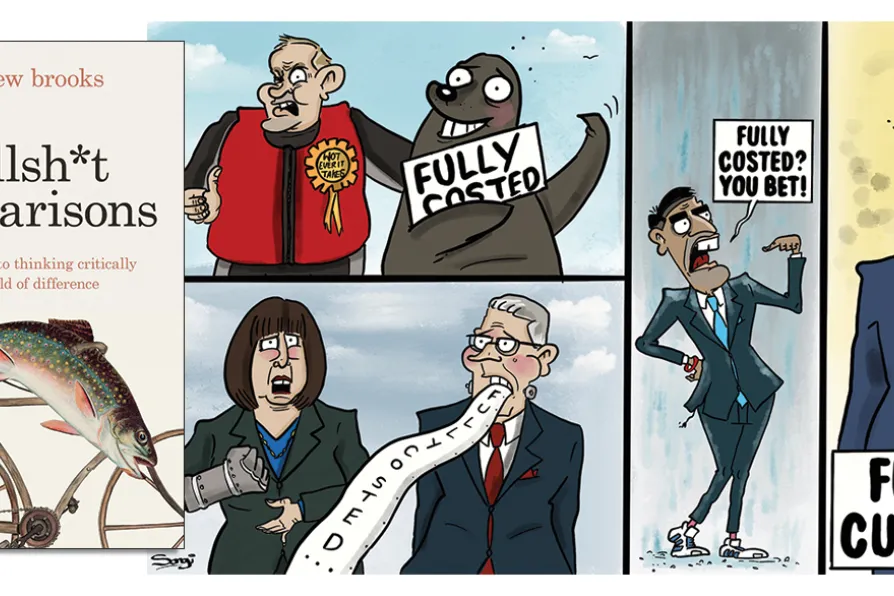MANJEET RIDON relishes a novel that explores the guilty repressions – and sexual awakenings – of a post-war Dutch bourgeois family

 Cartoon by Pete Songi
Cartoon by Pete Songi
Bullsh*t Comparisons
Andrew Brooks
Footnote, £16.99
CRITICAL thinking is a dangerous theme for blurb writers, especially when the word “bullsh*t” is used in a title. Andrew Brooks’ latest book provides a trenchant and timely critique of an increasingly common form of sloppy thinking. Sadly, it fails to fulfil a spectacular claim on its dustjacket: I have not been empowered to “spot bullsh*t at twenty paces.”
The identification of misleading information is an increasingly important skill and — as Brooks demonstrates through his entertaining and clearly argued examples — one that can be learned.
There’s a caveat here: developing an ability to challenge deception and deliberately contrived ambiguity is only possible if we are properly informed on the issue under discussion.
The author’s ruthless dissection of misleading comparisons in 12 subject areas depends largely on his informed perspective — sometimes based on personal enthusiasm, sometimes on his experience as a professional geographer.
This is why the weakest element of Brooks’ “field guide to thinking critically” is its conclusion, which glibly urges us to consider the agenda underpinning comparisons.
Do they misrepresent gender, foster a colonial mentality or promote the marketisation of everyday life? To answer these questions depends on domain specific knowledge and a detailed grasp of the associated terminology.
Brooks provides this information in each of his themed explorations but seems to forget its importance in his closing call to arms.
Setting this objection aside, Bullsh*t Comparisons provides powerful insights into an alarming aspect of contemporary communication.
The literary fig leaf of an asterisk is whipped away in Brooks’ introduction, which defines bullshit comparisons in terms of the misuse of metaphors (linguistic devices); models (evaluation against a standard); and metrics (the use of tables, measures and targets).
The book is rigorously structured: there are three sections, each based on a particular perspective — people, place or history. Within each of these, Brooks considers four topics in which bullshit comparisons distort perception and impair the taking of fair and effective decisions.
The book strides through a set of evaluative minefields: race, gender, sport, education, geopolitics, ecology and national identity. We are shown the potentially disastrous consequences for young footballers dubbed “the next (insert name of aging superstar)”; the socially limiting influence of the BBC’s 100 Greatest Britons poll; and the culturally destructive and individually tragic consequences of governmental obsession with Ofsted grades and Research Excellence Framework rankings.
Many years ago, the late Iain Banks warned of cities losing their identity “beneath a patina of multinational monopoly.” Brooks considers this erosion of local culture in the light of a false comparison of Lisbon with Barcelona, and the Portuguese city’s shift from focusing on the needs of its residents to obsessing about the maximisation of tourist revenue.
Other chapters reflect on the neocolonial control of poorer nations, such as Mozambique, through falsely positive comparisons; Britain’s socially and culturally self-limiting fixation with the events of the second world war; and the damaging assumption that the climate crisis can be dealt with through project-based technical fixes in the manner of the Nasa space programme of the 1960s.
Brooks points out that comparison is a critical part of human cognition, essential to making sense of events and learning from experience. But when it becomes false or fatuous it leads to unhealthy competition, causes ineffective problem-solving and promotes the obsessive — sometimes self-destructive — pursuit of narrowly defined notions of success.














